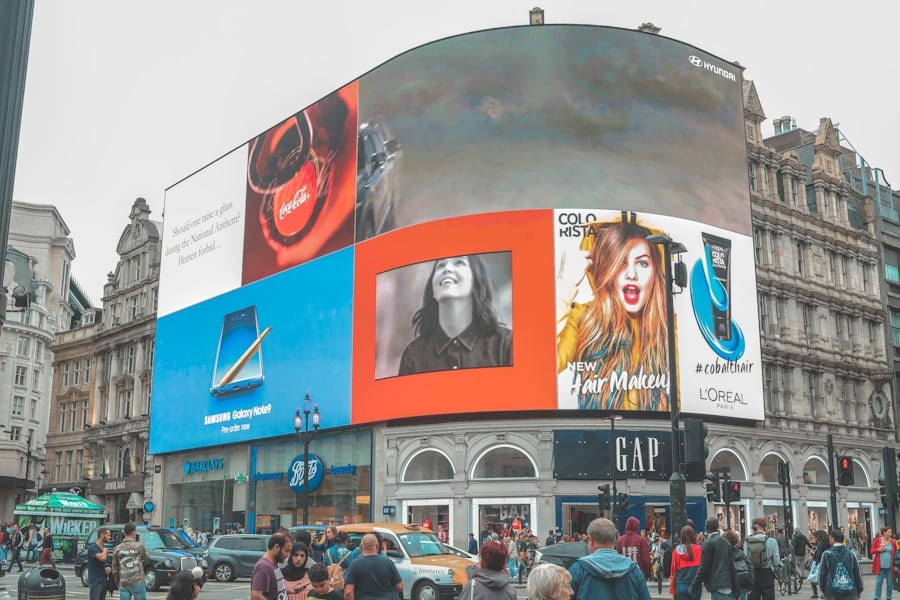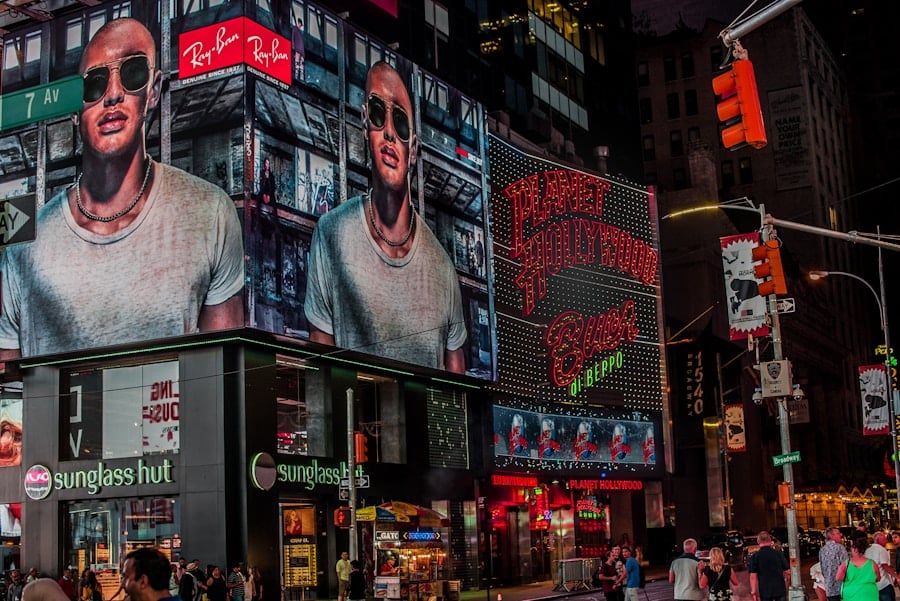The advertising landscape has undergone a seismic shift in recent years, driven by advancements in technology and the increasing demand for personalized consumer experiences. At the forefront of this transformation is generative artificial intelligence (AI), a powerful tool that enables brands to create tailored content at an unprecedented scale. Generative AI refers to algorithms that can generate new content, whether it be text, images, or even videos, based on existing data.
This capability allows advertisers to craft messages that resonate deeply with individual consumers, thereby enhancing engagement and driving conversions. As consumers become more discerning and inundated with information, the need for hyper-personalized advertising has never been more critical. Traditional advertising methods often fall short in capturing the attention of potential customers, leading to wasted resources and missed opportunities.
Generative AI addresses these challenges by enabling brands to analyze vast amounts of consumer data and generate content that speaks directly to the preferences and behaviors of specific audience segments. This article delves into the intricacies of hyper-personalized advertising, exploring how generative AI is reshaping the industry and what it means for the future of marketing.
Key Takeaways
- Generative AI is revolutionizing advertising by creating hyper-personalized content for targeted audience segments.
- Hyper-personalized advertising uses generative AI to tailor content to individual preferences and behaviors.
- Generative AI plays a crucial role in creating personalized content that resonates with specific audience segments.
- Leveraging generative AI allows advertisers to effectively segment and target their audience for maximum impact.
- The future of advertising lies in the continued evolution and implementation of generative AI for hyper-personalized content and customer engagement.
Understanding Hyper-Personalized Advertising
Hyper-personalized advertising goes beyond basic personalization, which typically involves using a consumer’s name or past purchase history in marketing communications. Instead, it leverages sophisticated data analytics and machine learning algorithms to create highly tailored experiences that consider a multitude of factors, including demographics, psychographics, online behavior, and even real-time context. This level of personalization allows brands to deliver messages that are not only relevant but also timely and engaging.
For instance, a fashion retailer might use hyper-personalization to recommend outfits based on a customer’s previous purchases, browsing history, and even current weather conditions in their location. If a customer frequently buys athletic wear and lives in a region experiencing a heatwave, the retailer could generate targeted ads featuring lightweight, breathable clothing suitable for outdoor activities. This approach not only increases the likelihood of conversion but also fosters a sense of connection between the consumer and the brand, as the messaging feels tailored to their unique lifestyle.
The Role of Generative AI in Creating Personalized Content

Generative AI plays a pivotal role in the creation of personalized content by automating and optimizing the content generation process. By analyzing vast datasets, generative AI can identify patterns and preferences that inform the type of content that will resonate with specific audience segments. For example, using natural language processing (NLP), generative AI can craft personalized email campaigns that address individual customer needs and interests, significantly improving open and click-through rates.
Moreover, generative AI can produce visual content tailored to different demographics. For instance, an automotive company might use generative algorithms to create advertisements featuring different car models that appeal to various age groups or lifestyles.
This ability to generate diverse content variations ensures that brands can maintain relevance across multiple audience segments without sacrificing quality or coherence.
Leveraging Generative AI for Targeted Audience Segmentation
Effective audience segmentation is crucial for any advertising strategy, and generative AI enhances this process by providing deeper insights into consumer behavior. Traditional segmentation methods often rely on broad categories such as age or gender, which may not capture the nuances of individual preferences. In contrast, generative AI utilizes machine learning algorithms to analyze complex datasets, identifying micro-segments based on behavioral patterns, interests, and purchasing history.
For example, a travel agency could leverage generative AI to segment its audience into highly specific groups based on travel preferences—such as adventure seekers, luxury travelers, or eco-conscious vacationers. By understanding these micro-segments, the agency can create tailored marketing campaigns that speak directly to each group’s desires and motivations. This level of precision not only improves the effectiveness of advertising efforts but also enhances customer satisfaction by delivering relevant offers that align with individual aspirations.
Enhancing Customer Engagement through Hyper-Personalized Advertising
Hyper-personalized advertising significantly enhances customer engagement by creating meaningful interactions between brands and consumers. When advertisements are tailored to reflect individual preferences and needs, they are more likely to capture attention and elicit positive responses. Generative AI facilitates this process by enabling brands to deliver dynamic content that evolves based on real-time data inputs.
For instance, consider a streaming service that uses generative AI to recommend shows and movies based on a user’s viewing history and preferences. By analyzing what genres a user enjoys and how they interact with the platform, the service can generate personalized recommendations that keep users engaged and encourage them to explore new content. This not only increases user retention but also fosters a sense of loyalty as consumers feel understood and valued by the brand.
Overcoming Challenges and Ethical Considerations in Generative AI Advertising

While the potential benefits of generative AI in advertising are substantial, there are also significant challenges and ethical considerations that must be addressed. One major concern is data privacy; as brands collect more data to fuel their hyper-personalized advertising efforts, they must navigate complex regulations such as GDPR and CCPEnsuring compliance while still delivering personalized experiences requires a delicate balance between leveraging data and respecting consumer privacy. Additionally, there is the risk of perpetuating biases present in training datasets.
If generative AI models are trained on biased data, they may produce content that reinforces stereotypes or excludes certain demographic groups. Advertisers must be vigilant in monitoring their AI systems to ensure that they promote inclusivity and diversity rather than inadvertently marginalizing specific audiences. This necessitates ongoing evaluation of algorithms and datasets to identify potential biases and implement corrective measures.
Case Studies: Successful Implementation of Generative AI in Hyper-Personalized Advertising
Several brands have successfully harnessed generative AI to enhance their advertising strategies through hyper-personalization. One notable example is Coca-Cola’s “Share a Coke” campaign, which utilized data-driven insights to create personalized labels featuring popular names. By leveraging generative algorithms to analyze social media trends and consumer preferences, Coca-Cola was able to produce millions of unique bottle designs that resonated with individual consumers.
This campaign not only drove sales but also fostered emotional connections between consumers and the brand. Another compelling case is Netflix’s recommendation engine, which employs generative AI to analyze user behavior and preferences. By continuously learning from viewer interactions, Netflix generates personalized content suggestions that keep users engaged with the platform.
This approach has proven instrumental in reducing churn rates and increasing viewer satisfaction, demonstrating how generative AI can transform customer experiences in the entertainment industry.
The Future of Generative AI in Revolutionizing Advertising Practices
As technology continues to evolve, the future of generative AI in advertising holds immense promise for further revolutionizing marketing practices. With advancements in machine learning algorithms and natural language processing capabilities, brands will be able to create even more sophisticated hyper-personalized experiences that cater to individual consumer needs in real time. The integration of augmented reality (AR) and virtual reality (VR) with generative AI could also open new avenues for immersive advertising experiences that engage consumers on a deeper level.
Moreover, as ethical considerations become increasingly important in consumer decision-making, brands that prioritize transparency and responsible data usage will likely gain a competitive edge.
In conclusion, generative AI is poised to redefine the advertising landscape by enabling hyper-personalized experiences that enhance customer engagement and drive brand loyalty.
As brands navigate the complexities of this technology, those who embrace its potential while addressing ethical challenges will be well-positioned for success in an ever-evolving marketplace.
Generative AI is revolutionizing the advertising industry by enabling hyper-personalized campaigns that resonate with individual consumers on a deeper level. This technology is being further enhanced by tools like NeuronWriter, which uses SEO and NLP optimization to boost content performance and engagement. In a related article, “Top Trends on LinkedIn 2023,” Enicomp explores the latest trends shaping the professional networking platform and how businesses can leverage them to enhance their marketing strategies. By staying informed on emerging technologies and trends, companies can stay ahead of the curve and deliver more personalized and impactful advertising campaigns. Check out the article here.
FAQs
What is generative AI?
Generative AI refers to a type of artificial intelligence that is capable of creating new content, such as images, text, or audio, that is similar to the input data it has been trained on. It uses techniques such as neural networks to generate this content.
How is generative AI used in advertising?
Generative AI is used in advertising to create hyper-personalized content for targeted audiences. It can generate personalized images, videos, and text based on individual user data, allowing for more tailored and effective advertising campaigns.
What are the benefits of using generative AI in advertising?
Using generative AI in advertising allows for highly personalized and targeted campaigns, leading to better engagement and conversion rates. It also enables advertisers to create a large volume of personalized content at scale, saving time and resources.
What are some potential concerns with using generative AI in advertising?
Some potential concerns with using generative AI in advertising include the ethical implications of using personal data to create highly targeted content, as well as the potential for misuse or abuse of the technology for deceptive or manipulative advertising practices.
How is generative AI impacting the future of advertising?
Generative AI is expected to continue shaping the future of advertising by enabling even more personalized and targeted campaigns. It has the potential to revolutionize the way advertisers create and deliver content, leading to more relevant and engaging experiences for consumers.

